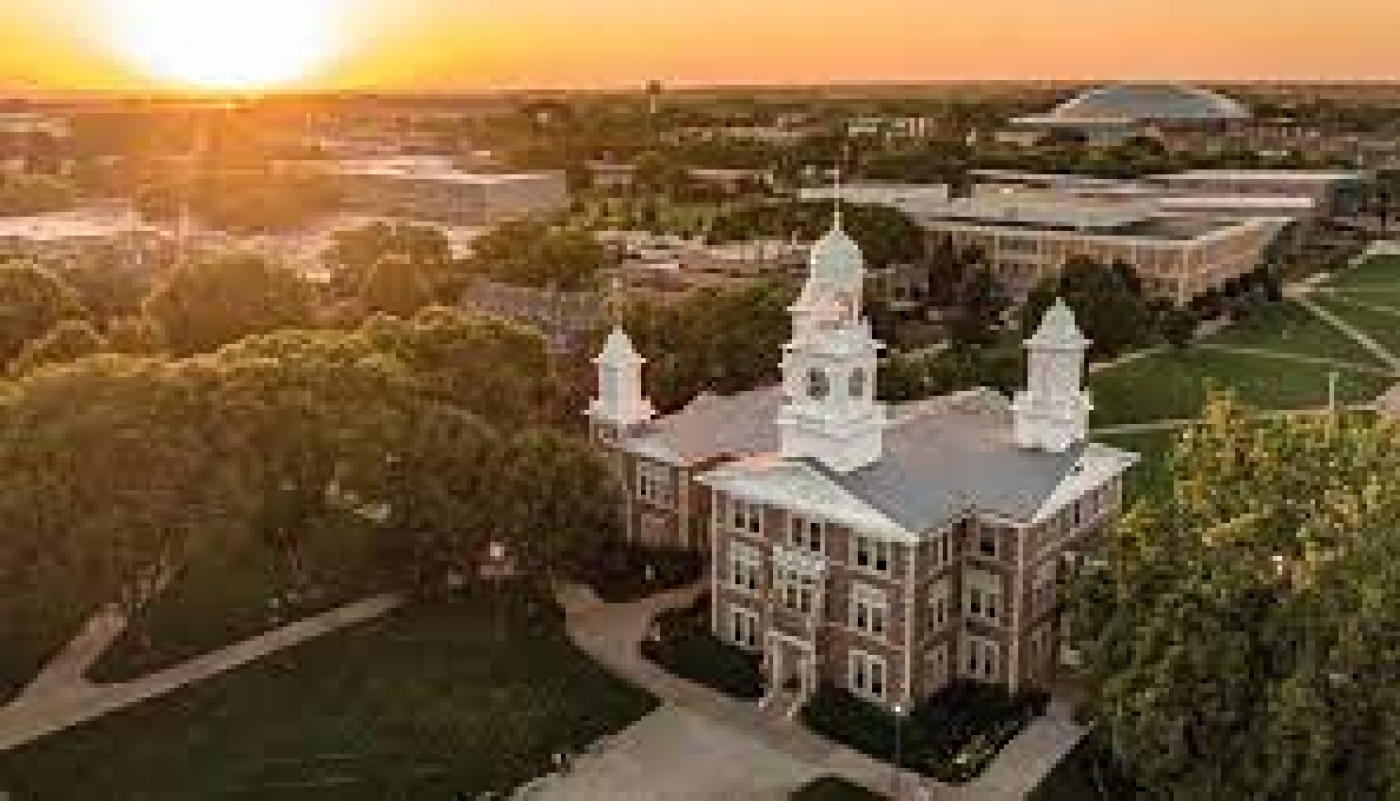
Home > Study in USA > South Dakota State University > Bachelor of Science in Early Education and Care
Bachelor of Science in Early Education and Care
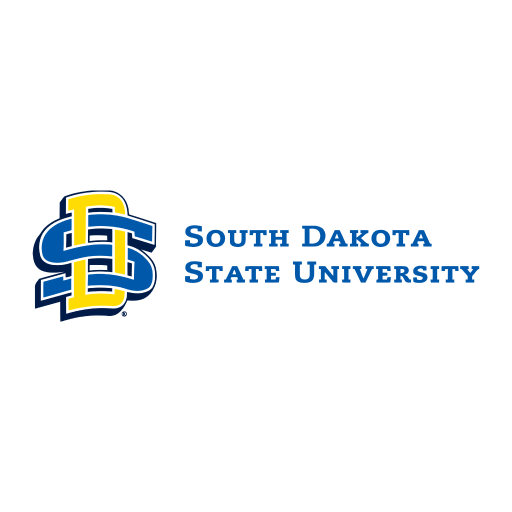 South Dakota State University, USA
South Dakota State University, USA

USD 12442
Annual Tuition Fee

USD 20 Waived
Application Fee

48 months
Duration

5.5
IELTS

61
TOEFL

56%
Min GPA
Program Overview
The Early Education and Care (EEC) is an online undergraduate program provided by seven universities working in collaboration. This program will prepare you to work in early childhood settings with young children, especially those whose family members are highly mobile. When students complete the program they will be qualified to work in a variety of programs that offer early care and education in the community and on military installations. Some of these programs are:
- Childcare centers and homes
- Infant/toddler and preschool programs
- Head Start programs
- Before and after-school programs for children ages birth to eight
Student Learning Outcomes
- Students use their understanding of young children’s characteristics and needs, and of multiple interacting influences on children’s development and learning, to create environments that are healthy, respectful, supportive, and challenging for each child. (Inquiry and Analysis; Critical and Creative Thinking; Information Literacy; Integrative Learning; Diversity, Inclusion and Equity)
- Students know about, understand, and value the importance and complex characteristics of children’s families and communities. They use this understanding to create respectful, reciprocal relationships that support and empower families, and to involve all families in their children’s development and learning. (Cross-curricular Skill: Inquiry and Analysis; Information Literacy; Civic Knowledge and Engagement; Integrative Learning; Diversity, Inclusion and Equity)
- Students know about and understand the goals, benefits, and uses of assessment. They know about and use systematic observations, documentation, and other effective assessment strategies in a responsible way, in partnership with families and other professionals, to positively influence the development of every child. (Cross-curricular Skill: Inquiry and Analysis; Critical and Creative Thinking; Information Literacy; Ethical Reasoning; Integrative Learning; Diversity, Inclusion and Equity)
- Students understand that teaching and learning with young children is a complex enterprise and its details vary depending on children’s ages, characteristics, and the settings within which teaching, and learning occur. They understand and use positive relationships and supportive interactions as the foundation for their work with young children and families. Candidates know, understand, and use a wide array of developmentally appropriate approaches, instructional strategies, and tools to connect with children and families and positively influence each child’s development and learning. (Cross-curricular Skill: Inquiry and Analysis; Critical and Creative Thinking; Information Literacy; Integrative Learning; Diversity, Inclusion and Equity)
- Students use their knowledge of academic disciplines to design, implement, and evaluate experiences that promote positive development and learning for each and every young child. Candidates understand the importance of developmental domains and academic (or content) disciplines in early childhood curriculum. They know the essential concepts, inquiry tools, and structure of content areas, including academic subjects, and can identify resources to deepen their understanding. Candidates use their own knowledge and other resources to design, implement, and evaluate meaningful, challenging curriculum that promotes comprehensive developmental and learning outcomes for every young child. (Cross-curricular Skill: Inquiry and Analysis; Critical and Creative Thinking; Information Literacy; Ethical Reasoning; Integrative Learning; Diversity, Inclusion and Equity)
- Students identify and conduct themselves as members of the early childhood profession. They know and use ethical guidelines and other professional standards related to early childhood practice. They are continuous, collaborative learners who demonstrate knowledgeable, reflective, and critical perspectives on their work, making informed decisions that integrate knowledge from a variety of sources. They are informed advocates for sound educational practices and policies. (Cross-curricular Skill: Information Literacy; Civic Knowledge and Engagement; Ethical Reasoning; Foundational Lifelong Learning Skills; Diversity, Inclusion and Equity)
- Students develop the knowledge, skills and professional dispositions necessary to promote the development and learning of young children across the entire developmental period of early childhood—in at least two of the three early childhood age groups (birth – age 3, 3 through 5, 5 through 8 years) and in the variety of settings that offer early education (early school grades, child care centers and homes, Head Start programs). (Cross-curricular Skill: Inquiry and Analysis; Critical and Creative Thinking; Information Literacy; Civic Knowledge and Engagement; Ethical Reasoning; Foundational Lifelong Learning Skills; Integrative Learning; Diversity, Inclusion and Equity)
Additional Information
Program Level 4-Year Bachelor's Degree
College/University Processing Time 21 Days
Program Format Full-Time
Optional Practical Training (OPT) 
General Admission Requirement
Academic Requirement
- Minimum Level of Education Required: To be accepted into this program, applicants must have Grade 12 / High School Diploma.
Similar Programs
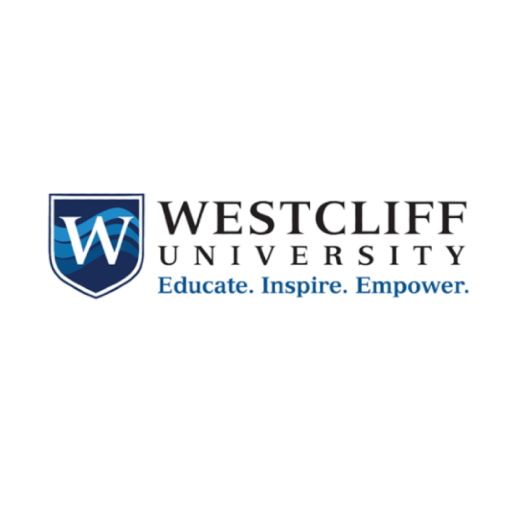

Westcliff University - Irvine Campus
Intake Sep 2025, May 2025, Jun 2025, Oct 2025
Jan 2025, May 2024, Jul 2024, Oct 2024, Sep 2024, Mar 2025

Application Fee

Duration
Test Score
5.5
IELTS
60
TOEFL
50
Min GPA


Westcliff University - Irvine Campus
Intake May 2025, Jun 2025, Oct 2025
Jan 2025, May 2024, Jul 2024, Oct 2024, Sep 2024, Mar 2025

Application Fee

Duration
Test Score
5.5
IELTS
60
TOEFL
50
Min GPA


Westcliff University - Irvine Campus
Intake Sep 2025, May 2025, Jun 2025, Oct 2025
Jan 2025, May 2024, Jul 2024, Oct 2024, Sep 2024, Mar 2025

Application Fee

Duration
Test Score
5.5
IELTS
60
TOEFL
50
Min GPA


Westcliff University - Irvine Campus
Intake Sep 2025, May 2025, Jun 2025, Oct 2025
Jan 2025, May 2024, Jul 2024, Oct 2024, Sep 2024, Mar 2025

Application Fee

Duration
Test Score
5.5
IELTS
60
TOEFL
50
Min GPA


Westcliff University - Irvine Campus
Intake Sep 2025, May 2025, Jun 2025, Oct 2025
Jan 2025, May 2024, Jul 2024, Oct 2024, Sep 2024, Mar 2025

Application Fee

Duration
Test Score
5.5
IELTS
60
TOEFL
50
Min GPA


Westcliff University - Irvine Campus
Intake Sep 2025, May 2025, Jun 2025, Oct 2025
Jan 2025, May 2024, Jul 2024, Oct 2024, Sep 2024, Mar 2025

Application Fee

Duration
Test Score
5.5
IELTS
60
TOEFL
50
Min GPA


Westcliff University - Irvine Campus
Intake Sep 2025, May 2025, Jun 2025, Oct 2025
Jan 2025, May 2024, Jul 2024, Oct 2024, Sep 2024, Mar 2025

Application Fee

Duration
Test Score
5.5
IELTS
60
TOEFL
50
Min GPA


Westcliff University - Irvine Campus
Intake Sep 2025, May 2025, Jun 2025, Oct 2025
Jan 2025, May 2024, Jul 2024, Oct 2024, Sep 2024, Mar 2025

Application Fee

Duration
Test Score
5.5
IELTS
60
TOEFL
50
Min GPA


Westcliff University - Irvine Campus
Intake Sep 2025, May 2025, Jun 2025, Oct 2025
Jan 2025, May 2024, Jul 2024, Oct 2024, Sep 2024, Mar 2025

Application Fee

Duration
Test Score
5.5
IELTS
60
TOEFL
50
Min GPA


Westcliff University - Irvine Campus
Intake Sep 2025, May 2025, Jun 2025, Oct 2025
Jan 2025, May 2024, Jul 2024, Oct 2024, Sep 2024, Mar 2025

Application Fee

Duration
Test Score
5.5
IELTS
60
TOEFL
50
Min GPA


Westcliff University - Irvine Campus
Intake Sep 2025, May 2025, Jun 2025, Oct 2025
Jan 2025, May 2024, Jul 2024, Oct 2024, Sep 2024, Mar 2025

Application Fee

Duration
Test Score
5.5
IELTS
60
TOEFL
50
Min GPA


Westcliff University - Irvine Campus
Intake Sep 2025, May 2025, Jun 2025, Oct 2025
Jan 2025, May 2024, Jul 2024, Oct 2024, Sep 2024, Mar 2025

Application Fee

Duration
Test Score
5.5
IELTS
60
TOEFL
50
Min GPA


Westcliff University - Irvine Campus
Intake Sep 2025, May 2025, Jun 2025, Oct 2025
Jan 2025, May 2024, Jul 2024, Oct 2024, Sep 2024, Mar 2025

Application Fee

Duration
Test Score
5.5
IELTS
60
TOEFL
50
Min GPA


Westcliff University - Irvine Campus
Intake Sep 2025, May 2025, Jun 2025, Oct 2025
Jan 2025, May 2024, Jul 2024, Oct 2024, Sep 2024, Mar 2025

Application Fee

Duration
Test Score
5.5
IELTS
60
TOEFL
50
Min GPA


Westcliff University - Irvine Campus
Intake Sep 2025, May 2025, Jun 2025, Oct 2025
Jan 2025, May 2024, Jul 2024, Oct 2024, Sep 2024, Mar 2025

Application Fee

Duration
Test Score
5.5
IELTS
60
TOEFL
50
Min GPA


Westcliff University - Irvine Campus
Intake Sep 2025, May 2025, Jun 2025, Oct 2025
Jan 2025, May 2024, Jul 2024, Oct 2024, Sep 2024, Mar 2025

Application Fee

Duration
Test Score
5.5
IELTS
60
TOEFL
50
Min GPA


Westcliff University - Irvine Campus
Intake Sep 2025, May 2025, Jun 2025, Oct 2025
Jan 2025, May 2024, Jul 2024, Oct 2024, Sep 2024, Mar 2025

Application Fee

Duration
Test Score
5.5
IELTS
60
TOEFL
50
Min GPA


Westcliff University - Irvine Campus
Intake Sep 2025, May 2025, Jun 2025, Oct 2025
Jan 2025, May 2024, Jul 2024, Oct 2024, Sep 2024, Mar 2025

Application Fee

Duration
Test Score
5.5
IELTS
60
TOEFL
50
Min GPA


Westcliff University - Irvine Campus
Intake Sep 2025, May 2025, Jun 2025, Oct 2025
Jan 2025, May 2024, Jul 2024, Oct 2024, Sep 2024, Mar 2025

Application Fee

Duration
Test Score
5.5
IELTS
60
TOEFL
50
Min GPA


Westcliff University - Irvine Campus
Intake Sep 2025, May 2025, Jun 2025, Oct 2025
Jan 2025, May 2024, Jul 2024, Oct 2024, Sep 2024, Mar 2025

Application Fee

Duration
Test Score
5.5
IELTS
60
TOEFL
50
Min GPA
Tuition Fee
The values given below are estimated figures, excluding extra charges like material fee, student activity fees, athletic fees, health care, etc., for courses. To know more, please visit the Programs page.
Average Tuition Fee Per Year
12442
Tuition Fee
(USD)
USD 20 Waived
Application Fee
(USD)
9000 Per year
Average Cost of Living
(USD)
The living costs include the total expenses per month, covering accommodation, public transportation, utilities (electricity, internet), books and groceries.
Check program website for more information about funding options.
Scholarships
- $1,000 - $4,000 per annum – merit scholarships (“Jackrabbit Guarantee”)
Not sure what you are looking for?
Don’t worry, we are here to help.
Popular Universities to Study Abroad
World class education waiting for you.
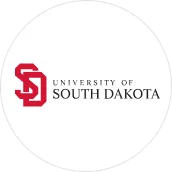
South Dakota, USA • 25 Programmes
Tuition Fee : USD 12000 - 13000 / year
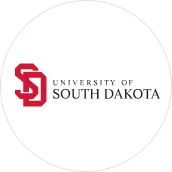
South Dakota, USA • 204 Programmes
Tuition Fee : USD 12000 - 13000 / year
Top Places To Study In Canada
Province wise Popular university and colleges for Studying abroad.
- Universities in Alabama
- Universities in Arizona
- Universities in Arkansas
- Universities in California
- Universities in Colorado
- Universities in Connecticut
- Universities in Delaware
- Universities in District of Columbia
- Universities in Florida
- Universities in Georgia
- Universities in Guyana
- Universities in Hawaii
- Universities in Illinois
- Universities in Indiana
- Universities in Iowa
- Universities in Kansas
- Universities in Kentucky
- Universities in Louisiana
- Universities in Maryland
- Universities in Massachusetts
- Universities in Michigan
- Universities in Minnesota
- Universities in Mississippi
- Universities in Missouri
- Universities in Montana
- Universities in Nebraska
- Universities in Nevada
- Universities in New Hampshire
- Universities in New Jersey
- Universities in New York
- Universities in North Carolina
- Universities in Ohio
- Universities in Oklahoma
- Universities in Oregon
- Universities in Other/Any where
- Universities in Pennsylvania
- Universities in Rhode Island
- Universities in South Carolina
- Universities in South Dakota
- Universities in Tennessee
- Universities in Texas
- Universities in Utah
- Universities in Vermont
- Universities in Virginia
- Universities in Washington
- Universities in West Virginia
- Universities in Wisconsin
Popular English Language Proficiency Exams
Blogs and Articles
Study in USA Blogs & Articles
Updated on • Dec 31,2024 12:39 PM IST • USA
Exams Required to Study in USA
Updated on • Dec 31,2024 12:44 PM IST • USA
Masters in Project Management in USA
Updated on • Nov 26,2024 01:15 PM IST • USA
Updated on • Nov 25,2024 03:33 PM IST • USA
Updated on • Sep 17,2024 05:51 PM IST • USA
Updated on • Jul 12,2024 05:59 PM IST • USA
Cost of Living in USA for Indian Students
Updated on • Jun 07,2024 05:57 PM IST • USA
Updated on • Jun 05,2024 04:27 PM IST • USA
1 Year Master of Science (MS) in USA
Updated on • May 30,2024 05:51 PM IST • USA
How to Get a Job in USA as an Indian Student?
Updated on • May 28,2024 01:22 PM IST • USA
Top MBA Programs in USA in 2024
Updated on • May 23,2024 05:56 PM IST • USA
Crack Your F1 US Student Visa Interview with Ease
Updated on • May 17,2024 01:43 PM IST • Study in Ireland
Updated on • May 03,2024 04:23 PM IST • USA
Master of Engineering Management in USA: Universities, Eligibility Criteria, Scholarships
Updated on • Mar 14,2024 03:42 PM IST • USA
MS in USA: Best Courses, Requirements, Cost, Scholarships, Jobs & More
Updated on • Mar 14,2024 10:23 AM IST • USA
Top 5 PhD Scholarships in USA for Indian Students
Updated on • Mar 12,2024 01:06 PM IST • Scholarships
MS in Finance in USA: Universities, Tuition Fees, Admission Process & More
Updated on • Mar 11,2024 05:29 PM IST • USA
10 Universities to Study Master's in USA
Updated on • Mar 02,2024 05:26 PM IST • USA
US Universities Accepting Backlogs
Updated on • Feb 29,2024 05:19 PM IST • USA
Spring Intake in USA 2025: Universities & Preparation Timeline
Updated on • Dec 16,2024 05:43 PM IST • USA






